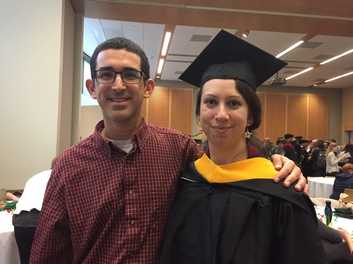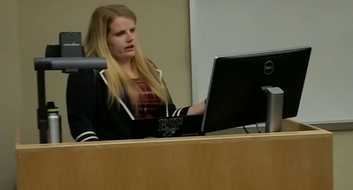 Dr. Cohen and Melissa celebrate the completion of her Master's degree in December.
Dr. Cohen and Melissa celebrate the completion of her Master's degree in December. Melissa's summer fellowship paid off, as she was offered a permanent position with the U.S. Fish and Wildlife Service after graduation. Melissa will be a Wildlife Biologist at Erie Natonal Wildlife Refuge in Pennsylvania. It has been fun having Melissa in our lab, and wish her the best for the next phase of her career!

 RSS Feed
RSS Feed
